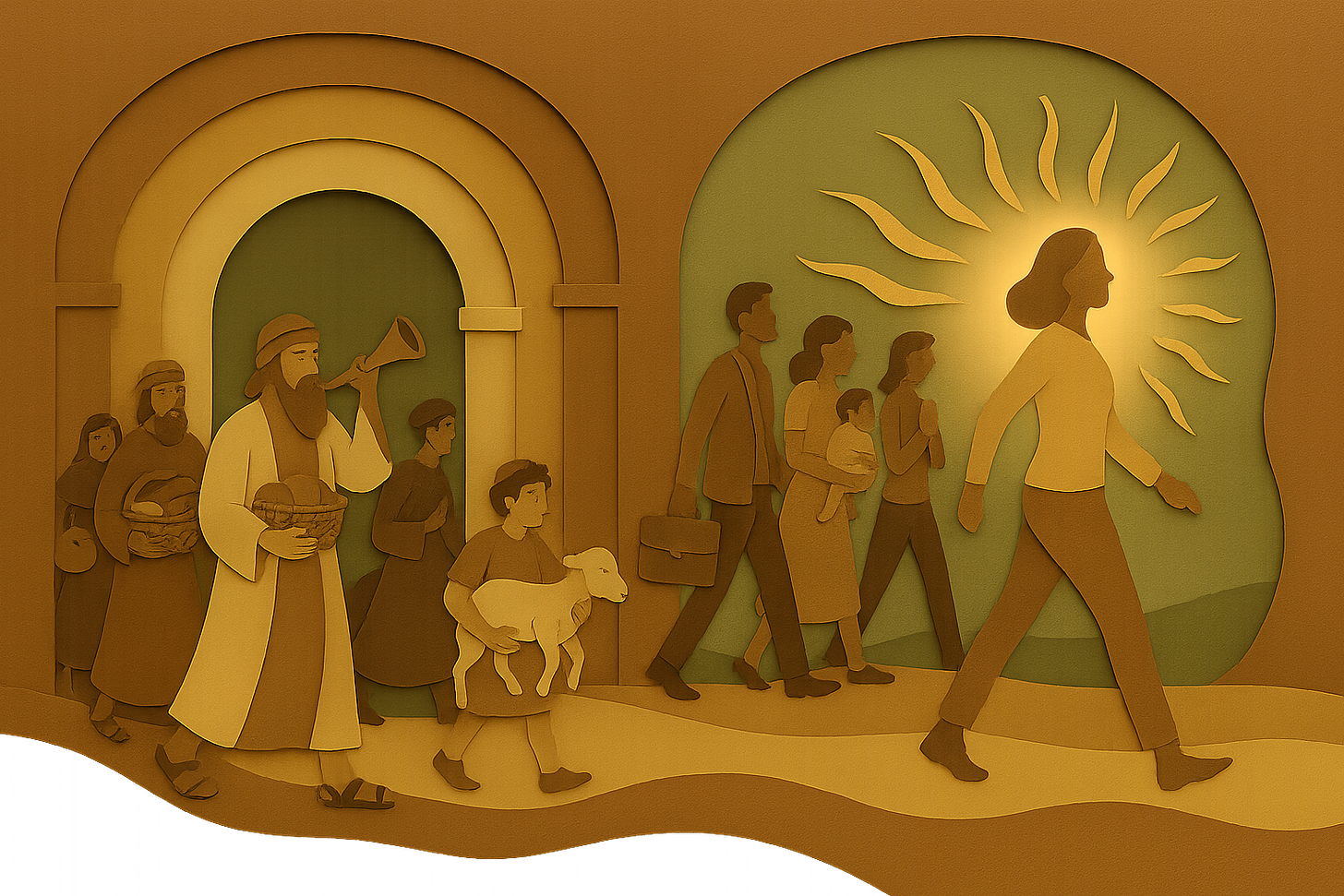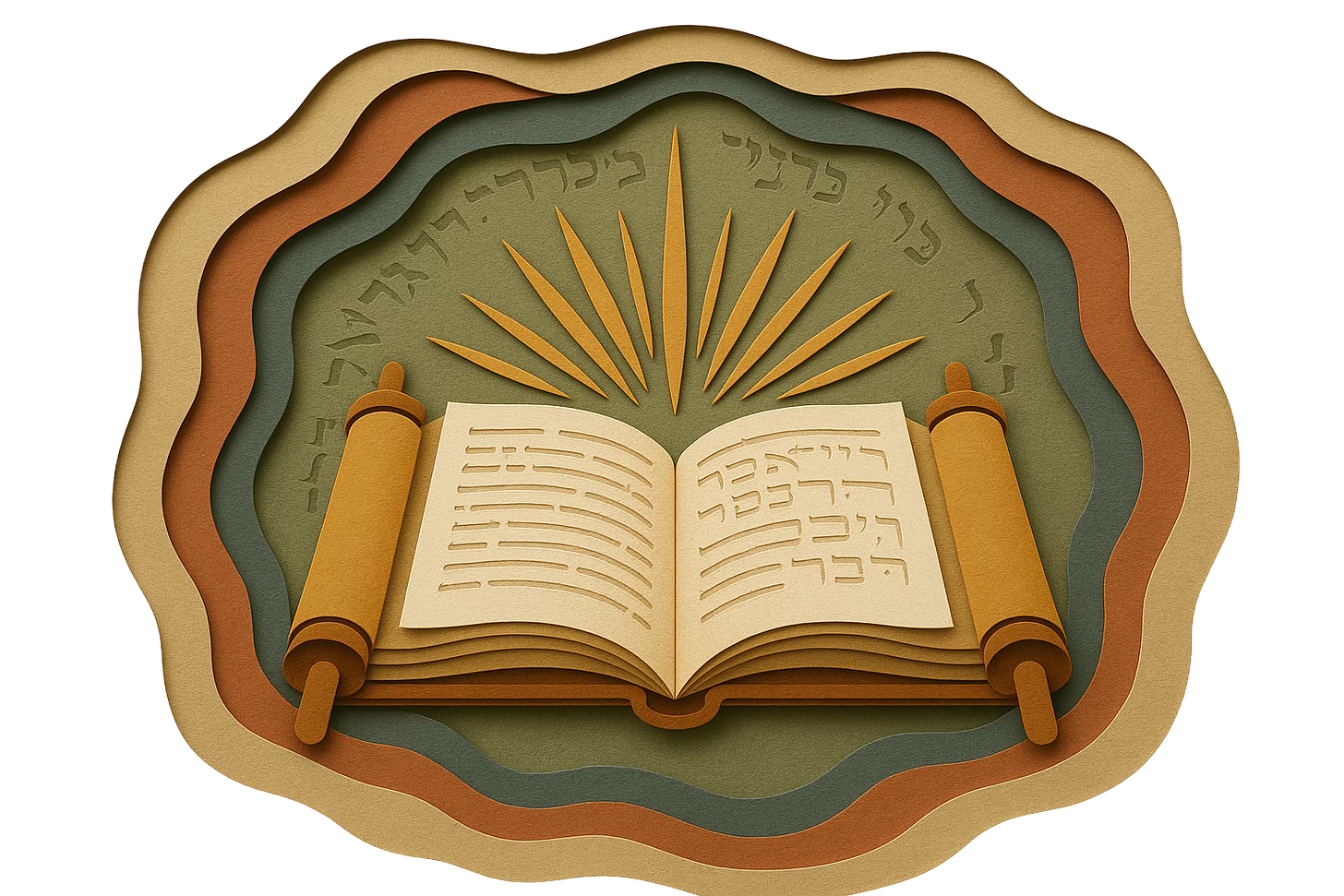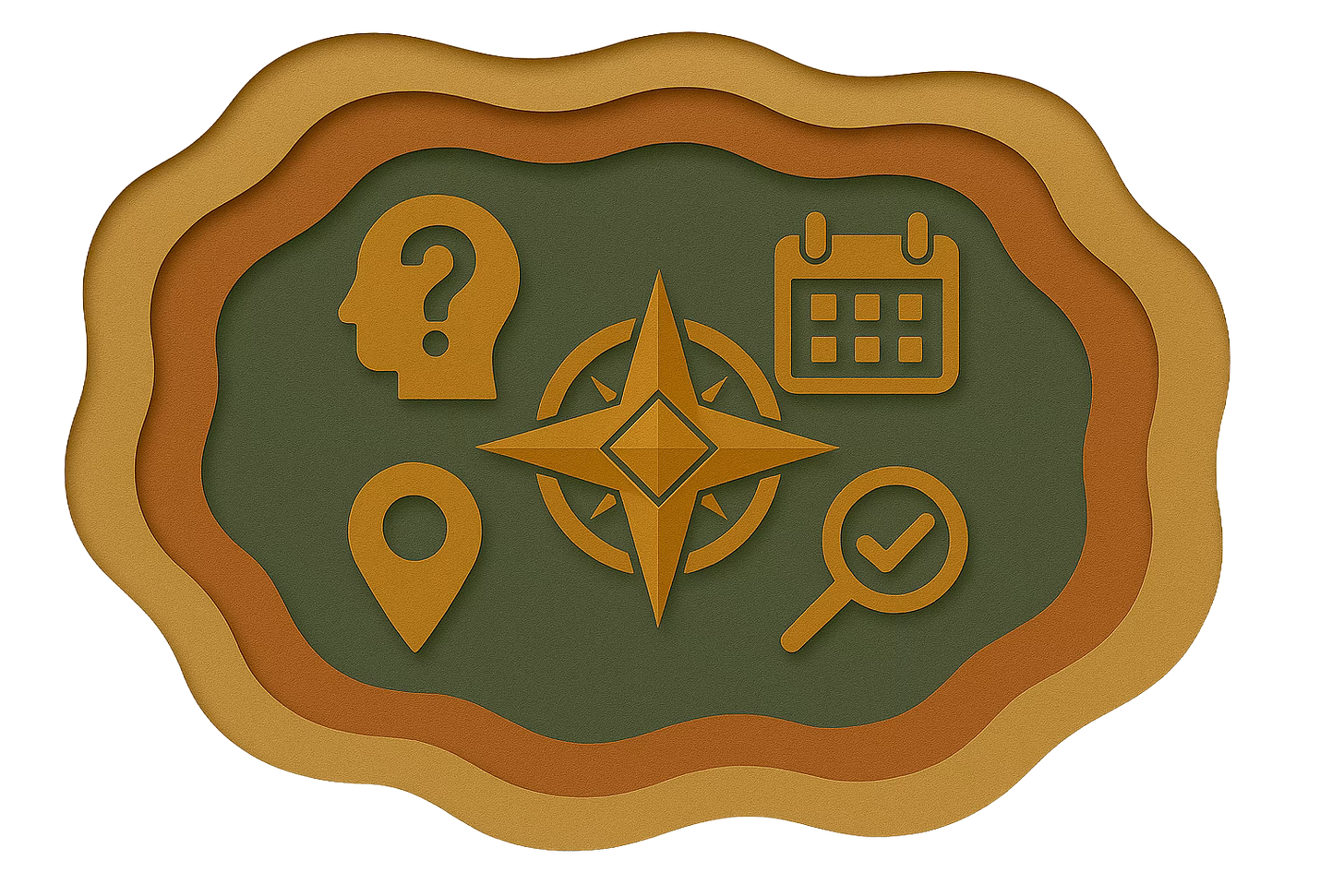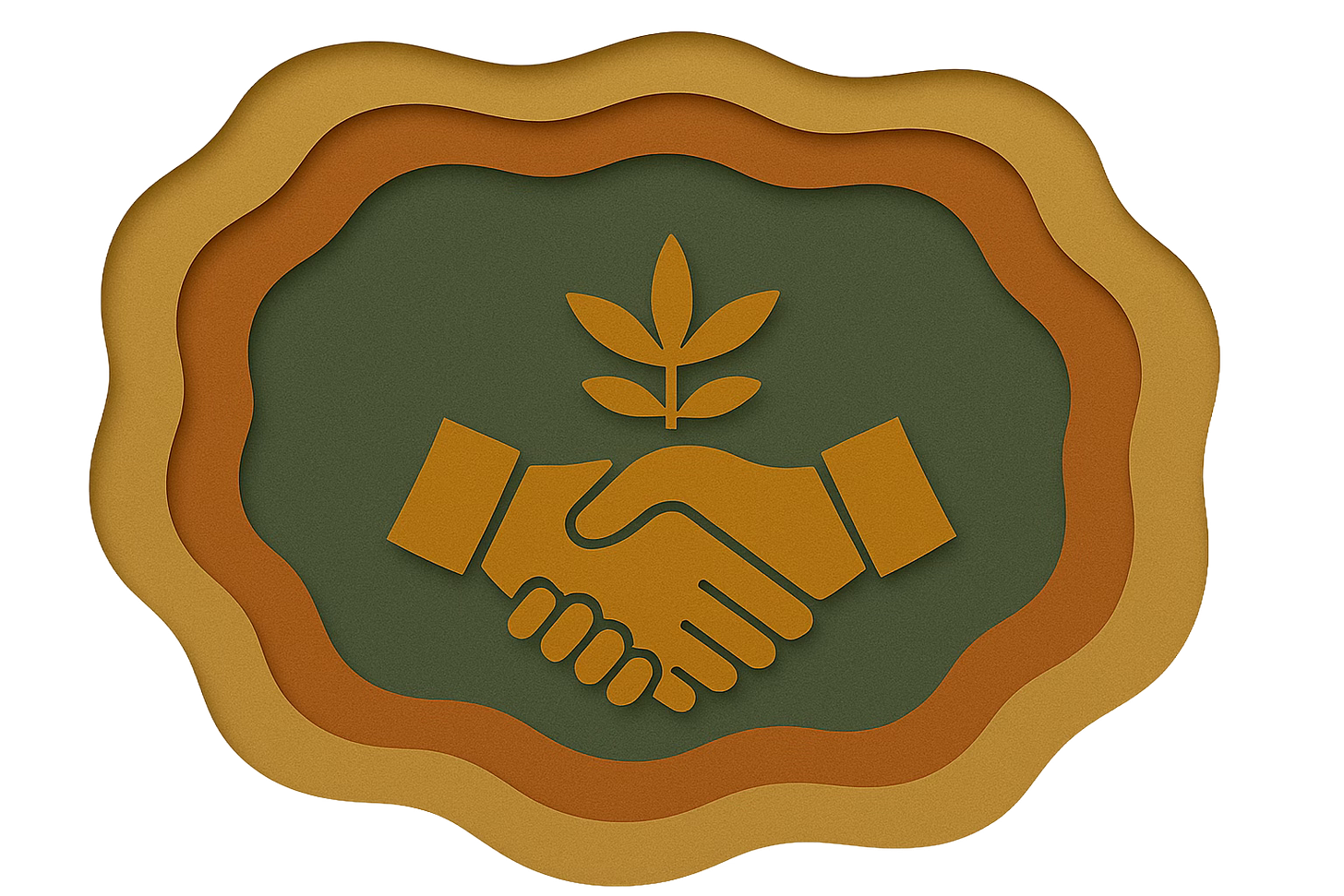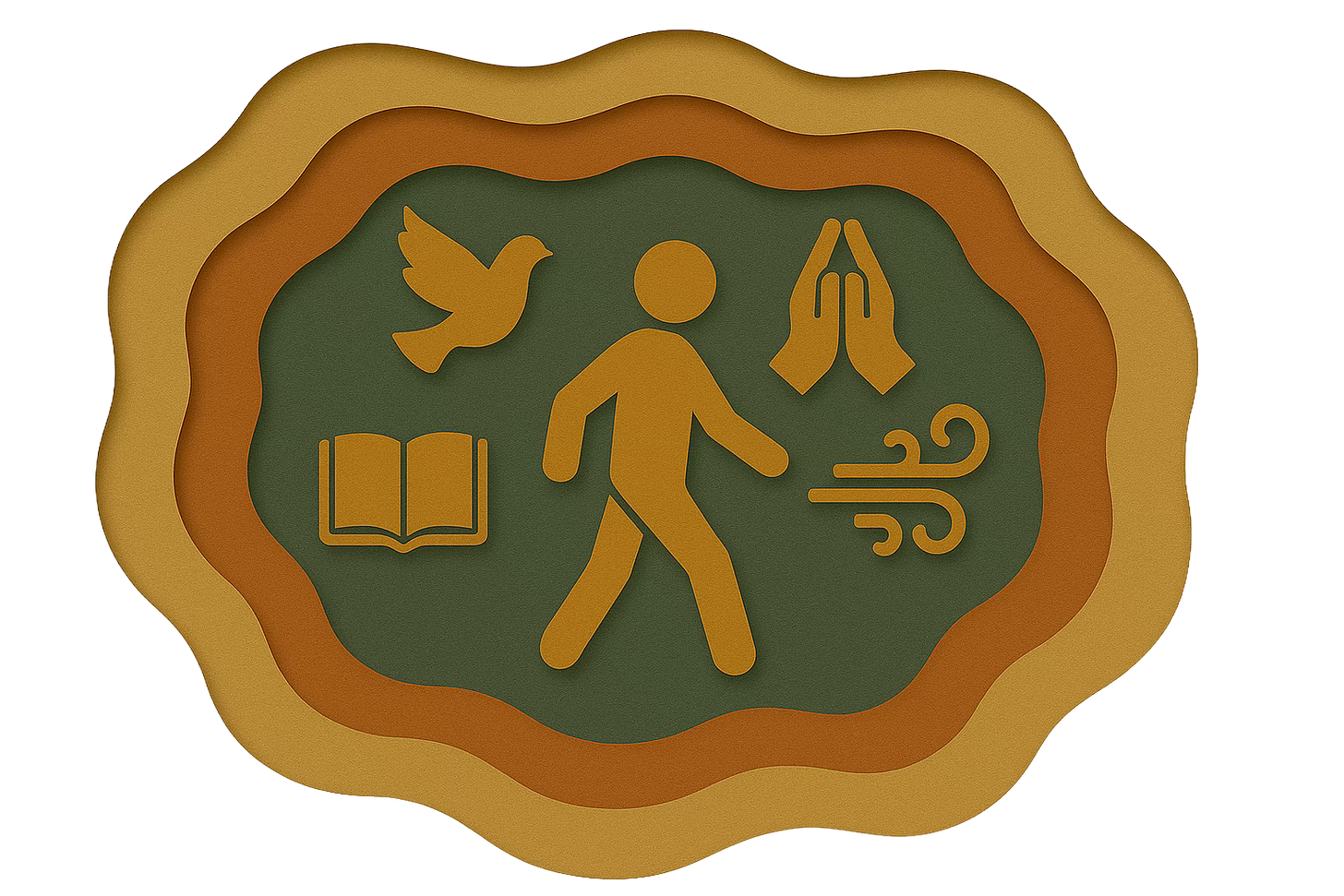Enter His Gates with Your Life
Psalm 100 and the Journey from Temple Procession to Living Sacrifice
Scripture: The Living Word
Psalm 100 (KJV)
1 Make a joyful noise unto the LORD, all ye lands.
2 Serve the LORD with gladness: come before his presence with singing.
3 Know ye that the LORD he is God: it is he that hath made us, and not we ourselves; we are his people, and the sheep of his pasture.
4 Enter into his gates with thanksgiving, and into his courts with praise: be thankful unto him, and bless his name.
5 For the LORD is good; his mercy is everlasting; and his truth endureth to all generations.
So reads the King James Version, often spoken in churches at the start of worship. The words are familiar, the cadence steady, the organ ready to follow with song. For many congregations, Psalm 100 is a Call to Worship — a prelude, a signal that the service has begun.
But Psalm 100 in its original setting was far more than a prelude. It was itself the worship. It was a psalm of procession, sung as pilgrims carried thanksgiving offerings into the temple, passing through the gates and into the courts, declaring with their lips and their lives: “Yahweh is good; His steadfast love endures forever.”
And in Messiah, this psalm takes yet another shape. For there is no longer a temple of stone. We are the temple of the Spirit (1 Corinthians 3:16). There is no altar in our sanctuaries — the altar is our very lives, laid down daily as living sacrifices (Romans 12:1). Psalm 100 is not simply a passage to read before worship begins. It becomes the pattern of worship for our lives in the Way.
Context: The Procession Then and Now
The Original Procession (Temple)
Psalm 100 was sung as part of a pilgrim procession into the temple in Jerusalem. It wasn’t quiet or symbolic — it was embodied, physical, communal.
Pilgrimage Festivals: Three times a year, families from every corner of Israel traveled to Jerusalem for the great feasts — Passover, Shavuot, and Sukkot (Deuteronomy 16:16). Psalm 100 would have been on the lips of pilgrims ascending Zion, mingling with the psalms of ascent.
Temple Geography: The words of the psalm matched the journey: “Enter His gates with thanksgiving” — pilgrims moving through the outer gates; “and His courts with praise” — stepping into the temple courts where sacrifices were offered. Worship was sung in motion.
Sacrificial Offering: The todah — thanksgiving — wasn’t abstract. Families brought lambs, bread, wine, and grain as tangible gratitude for Yahweh’s deliverance (Leviticus 7:12–15). They would share a meal of thanksgiving in Yahweh’s presence.
Communal Witness: This was no private devotion. Every offering was seen, every shout was heard. Together they declared: “Yahweh is good; His covenant love endures forever.”
Different from the Nations: Other ancient peoples came to appease their gods. Israel came with joy, confident in Yahweh’s faithful love.
Picture it: The streets of Jerusalem alive with voices and instruments. Pilgrims climb the steps, lambs and baskets in tow. They shout Psalm 100 in rhythm, trumpets blasting as they pass through the gates. Inside the courts, priests receive their offerings. The air is thick with incense, roasted grain, and song. The psalm itself was the worship — the living, embodied act of covenant thanksgiving.
The Church Call to Worship (Sanctuary)
Fast-forward centuries. In many churches today, Psalm 100 is still read, usually from the King James Version, as the Call to Worship. But here it often functions more like a prelude — a liturgical cue that worship is about to begin. What follows is typically music chosen to stir emotion, to “prepare hearts.” The psalm becomes an introduction, rather than the act of worship itself.
The New Procession (Our Lives in Christ)
In Messiah, the temple of stone is gone, and we are the temple of the Spirit (1 Corinthians 6:19). There is no altar of wood or bronze in our churches — the altar is our own lives, laid down as living sacrifices (Romans 12:1).
Psalm 100 becomes not a prelude, but the pattern of life itself:
We shout His kingship by the way we live.
We serve Him with gladness in every act of work, justice, and kindness.
We know Him (yadaʿ — intimate covenant experience) and let that knowing govern our praise.
We enter with thanksgiving by carrying gratitude into every breath.
We testify to His goodness as the story our lives tell.
This is the procession of the Way — not toward a building in Jerusalem, and not as a prelude to a worship service in a church, but into every corner of life, where our very lives themselves are the offering. Worship is not confined to the sanctuary or the liturgy; it is the daily movement of those who walk with Messiah, carrying thanksgiving, service, and testimony wherever they go.
Hebrew Words and How We Embody Them
Ru‘a (רוּעַ) — “Shout / Make a joyful noise”
Definition: To raise a shout, cry out, or sound a trumpet blast; often used for a king’s victory procession (Joshua 6:5).
How we embody it: We proclaim Yahweh’s kingship through our words and lives — not just in song, but in every public witness that He reigns.Avad (עָבַד) — “Serve”
Definition: To work, serve, or worship; the service of a bondservant bound by covenant loyalty (Exodus 3:12).
How we embody it: We worship Yahweh not only with songs, but by offering our daily work, justice, kindness, and obedience as acts of glad service.Yadaʿ (יָדַע) — “Know”
Definition: To know deeply, intimately, relationally — the same word used for marital intimacy (Genesis 4:1). Not head knowledge, but covenant intimacy.
How we embody it: We worship by walking in intimacy with Yahweh, bringing our lived experience of His faithfulness into every act of praise and obedience. This knowing is what governs and leads us into worship.Todah (תּוֹדָה) — “Thanksgiving”
Definition: A thanksgiving offering, often of bread, wine, or animal sacrifice; rooted in yadah (to confess/acknowledge), it is gratitude made visible (Leviticus 7:12–15).
How we embody it: We bring our lives as todah — living sacrifices, offering gratitude not only in words but in how we live.Chesed (חֶסֶד) — “Steadfast love / Mercy”
Definition: Yahweh’s covenant love, loyal kindness, unfailing commitment to His people (Exodus 34:6).
How we embody it: We receive His chesed with humility and extend covenant love to others, living as vessels of His mercy.’Emunah (אֱמוּנָה) — “Faithfulness / Truth”
Definition: Steadfastness, reliability, firmness; not abstract “truth” but relational faithfulness that endures (Deuteronomy 7:9).
How we embody it: We worship by trusting Yahweh’s faithfulness in every generation and living faithfully ourselves as His witnesses.
Covenant: Worship as Belonging
Psalm 100 grounds worship not in performance but in belonging: “It is He who made us, and we are His; we are His people, and the sheep of His pasture.”
For Israel, this identity was renewed with every procession into the temple. They did not just go to worship — they went as worshippers. Their identity shaped their shout, their service, their thanksgiving.
For us, this identity is fulfilled in Messiah. We are His flock, gathered by the Good Shepherd (John 10:11). We are His temple, indwelt by the Spirit (1 Corinthians 6:19). Worship is no longer bound to a place or time. We don’t go to worship; our lives become worship.
Practice: Living the Procession
Psalm 100 is not just a song to recite or a prelude before worship begins. It is the pattern of worship itself — a procession we embody daily.
Shout: Let your life proclaim Yahweh’s kingship.
Serve: Offer your daily work and relationships as covenant service.
Know: Cultivate intimacy with Yahweh; let your lived experience govern your praise.
Enter with thanksgiving: Carry gratitude into every moment as a living sacrifice.
Testify: Confess His goodness and faithfulness as the story your life tells.
Three Takeaways
Worship is not an event we attend but a procession we live.
The knowledge (yadaʿ) of Yahweh is intimate, experiential, covenantal — it is what governs our worship.
Thanksgiving is not abstract but embodied: we bring our lives as the offering.
Three Discussion Questions
How does understanding yadaʿ (knowing Yahweh intimately) change the way we think about worship?
In what ways can our daily work, relationships, and service become acts of worship?
If our lives are the procession, how can we more intentionally “enter His gates with thanksgiving” in everyday life?
Seven-Day Procession
Day 1 (🪞 Personal): Speak Psalm 100 aloud as your daily procession.
Day 2 (🤝 Community): Share a word of Yahweh’s goodness with someone.
Day 3 (🙏 Spiritual): Pray only thanksgiving — no petitions.
Day 4 (🪞 Personal): Journal: how has your life become worship this week?
Day 5 (🤝 Community): Serve someone gladly as your act of worship.
Day 6 (🙏 Spiritual): Sing a psalm or hymn that confesses His faithfulness.
Day 7 (Sabbath Rest): Rest as His sheep, reflecting on His covenant love across generations.
Closing Blessing
May your life be the procession. May your shout, your service, your knowing, your thanksgiving, and your testimony become the offering. And may Yahweh’s covenant love and faithfulness carry you as His temple, His flock, His people forever.


